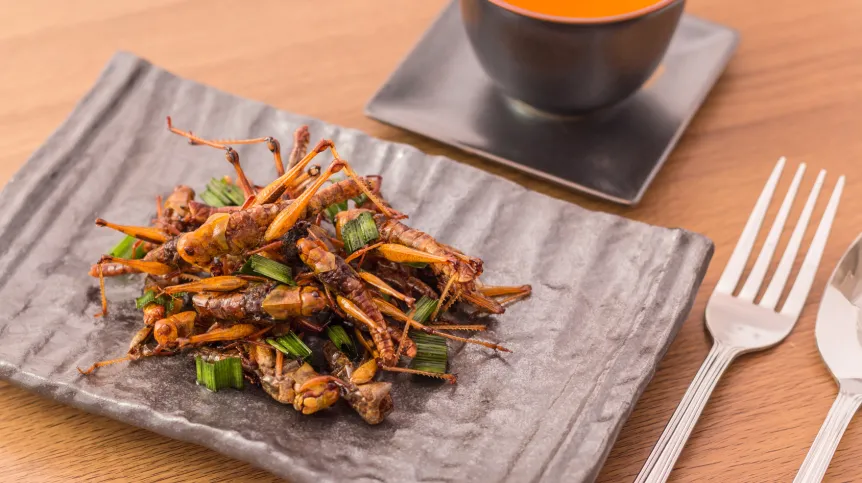
According to estimates, more than 2 billion people worldwide eat insects every day. For many people it is the only available meat meal rich in protein, sugars and vitamins. Ants, bugs, grasshoppers and butterfly larvae are eaten in Asia, Africa and South America - says zoologist Dr. Radomir Jaskuła.
Insect meat is rich in amino acids, fats, sugars, and has a high concentration of vitamins B and K - says the expert from the Department of Invertebrate Zoology and Hydrobiology, University of Lodz.
People have been eating insects for over 5 million years. Our ancestors - the first hominids, creatures that resembled apes more than humans and wandered the savannas in Africa, consumed insects as an additional protein food, picking them and lousing each other in order to tighten bonds.
The situation has changed over the millennia, but insects remain on the menu of many people worldwide. There are several reasons for that. "In some cases, it's about a high sugar content. An example are honey ants, which Aborigines eat in large quantities. In addition, insects have a very high content of fats and proteins. In comparison to chicken meat, it is several times higher. Butterflies, beetles and even ordinary flies are 70-80 percent protein" - explains Dr. Jaskuła.
Another important property of insects is a large concentration of various vitamins from groups B and K. "Imagine that, for example, wasps have a much higher concentration of vitamins than some fruits. One of the Japanese emperors Hirohito knew that well, he considered them a delicacy and ordered his cooks to bake them in special pies" - he says.
People in Southeast Asia eat almost all insects. At markets you can buy skewers with larvae of various butterflies and their pupae, and soups that contain a variety of bugs.
"In some regions of Asia, for example Vietnam, Laos or Thailand, insects are the main source of meat for the poor part of society. You can get almost anything at markets and in restaurants. These are mainly large insects such as grasshoppers, butterfly larvae, large bugs, because the larger the piece of meat, the better. But people also consume ants, wasps, bees, dragonflies. The latter are the main food of animal origin in some regions of Bali" - explains the expert from the University of Lodz.
When it comes to cooking insects, their chitinous shell is inedible. Small insects are usually either eaten whole (but the shell is not digested), or their soft parts are extracted.
"The shell falls apart while roasting or gets crushed. Some flyworms are eaten in African countries - they are simply made into pie-shaped dishes" - says the zoologist.
In Colombia, people roast ants in a way similar to making popcorn. Stink bugs, often found on raspberries in Poland and known for their very unpleasant smell that deters enemies, are prepared in a similar way in Mexico.
"In Mexico they are prepared in hot oil, sprinkled with powdered paprika or salt and consumed as snacks, for example during a football game" - adds Dr. Jaskuła.
Although consuming insects might seem strange from the European point of view, the zoologist points out that according to the FAO (United Nations Food and Agriculture Organization) estimates, every day about one third of the Earth's population, or more than 2 billion people, eat insects.
"This is a really large number and it seems that in many regions insects can be an important and perhaps the only alternative when it comes to eating meat" - says Dr. Radomir Jaskuła.
PAP - Science in Poland
szu/ zan/ jjj/ kap/
tr. RL













